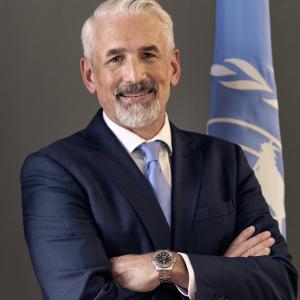Celebrating the dynamic UN-India partnership!
Dear UN in India friends and partners,
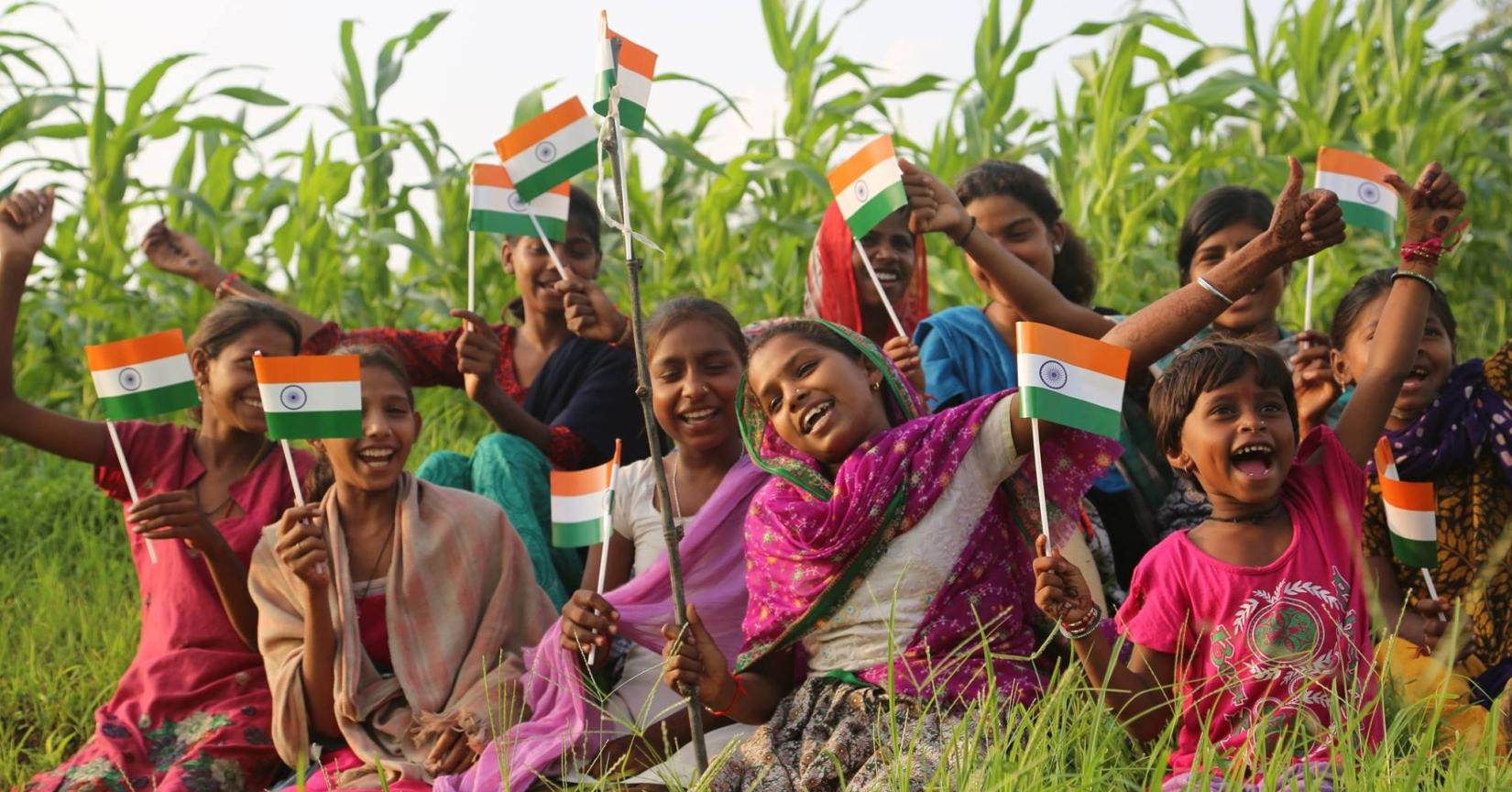
As we step into the New Year, it is a moment to both reflect and look forward. From breakthroughs in public health and food security to major advances in poverty reduction, technology and climate action, 2024 has proven to be another transformative year in India – as it has been for us at the United Nations in India, all 26 entities partnering with government, civil society and business across every State and Union Territory, as well as with our international development partners.
Fresh off hosting the G20 presidency last year, India reinforced its role as a leading ‘voice of the Global South,’ driving international discourse on climate justice, food security and health equity among other issues central to the Sustainable Development Goals.
In an era of deep political polarization and tensions worldwide, it also demonstrated the strength and resilience of its democracy, the world’s largest, with more than 640 million people voting in the national election.
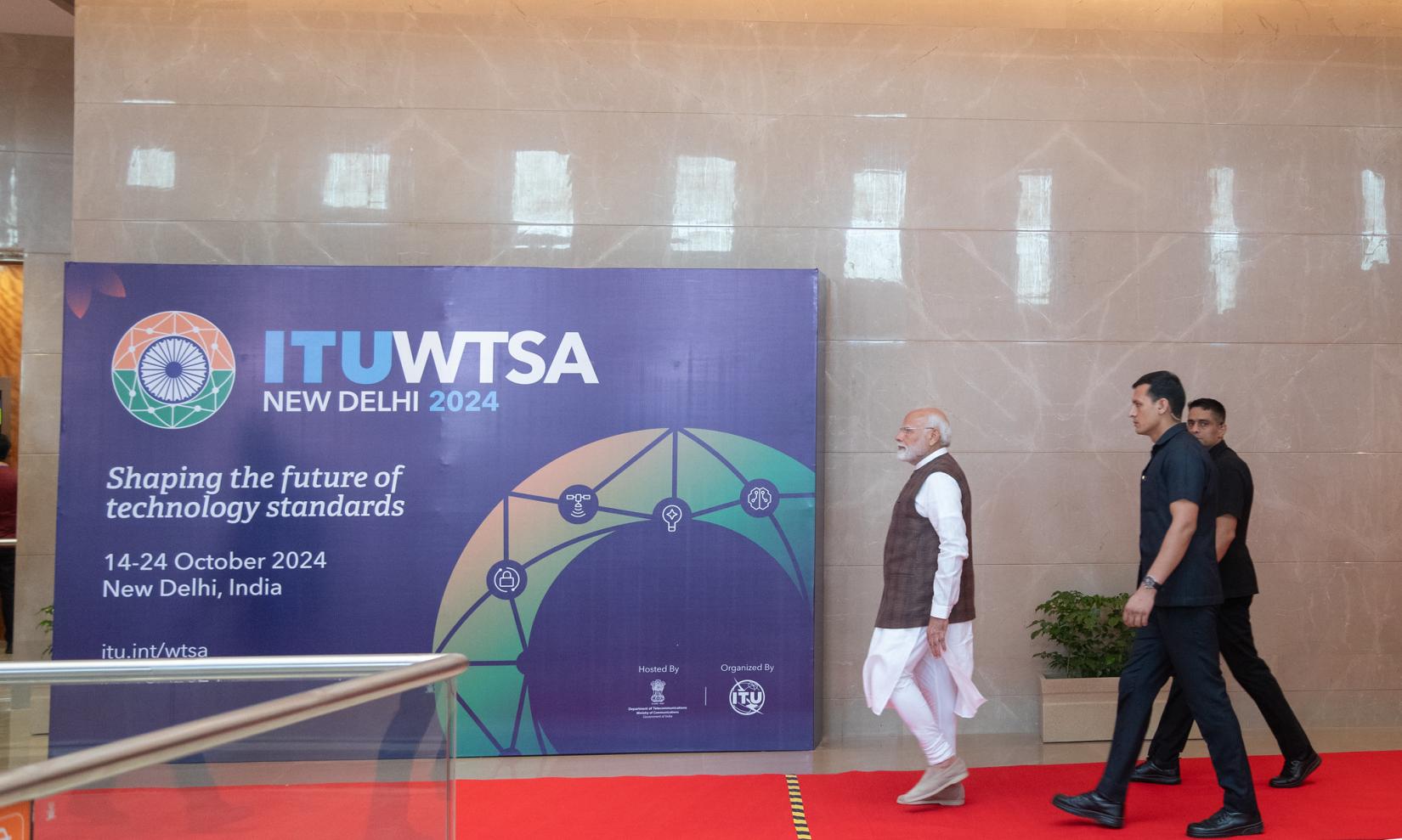
In parallel, India hosted major UN gatherings on key multilateral issues old and new. At the 2024 ITU World Telecommunication Standardization Assembly, held in New Delhi, new global agreements were reached on critical issues such as artificial intelligence (AI), sustainability and digital governance. With a strong focus on digital public infrastructure and emergency communications, India is at the forefront of setting digital standards that will impact the world for years to come.
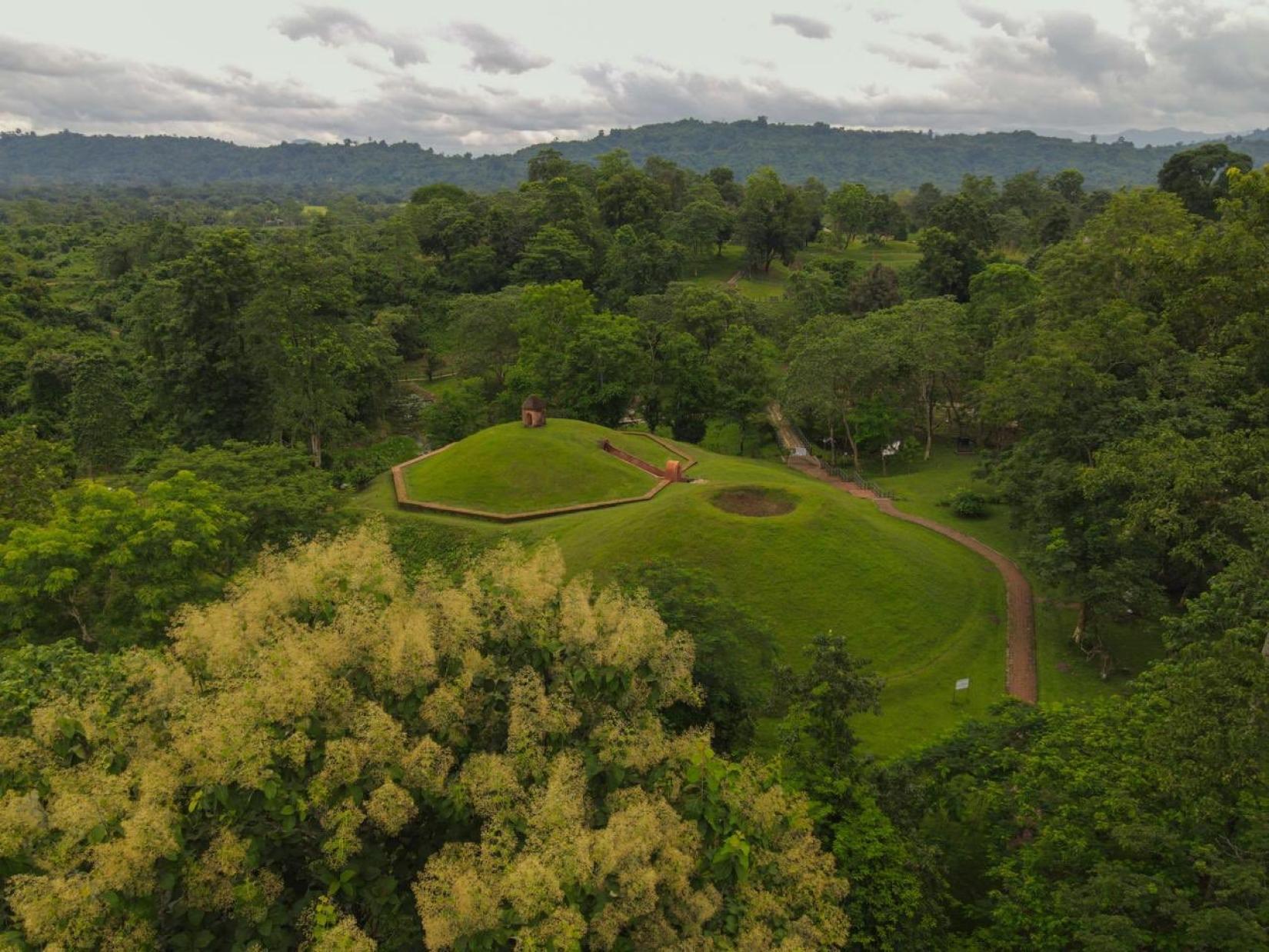
The country’s cultural heritage shone brightly on the global stage as India played host to the annual UNESCO World Heritage Committee meeting for the first time. Notably, Assam’s moidams — the Mound-Burial System of the Ahom Dynasty — became India’s 43rd site on the World Heritage List.
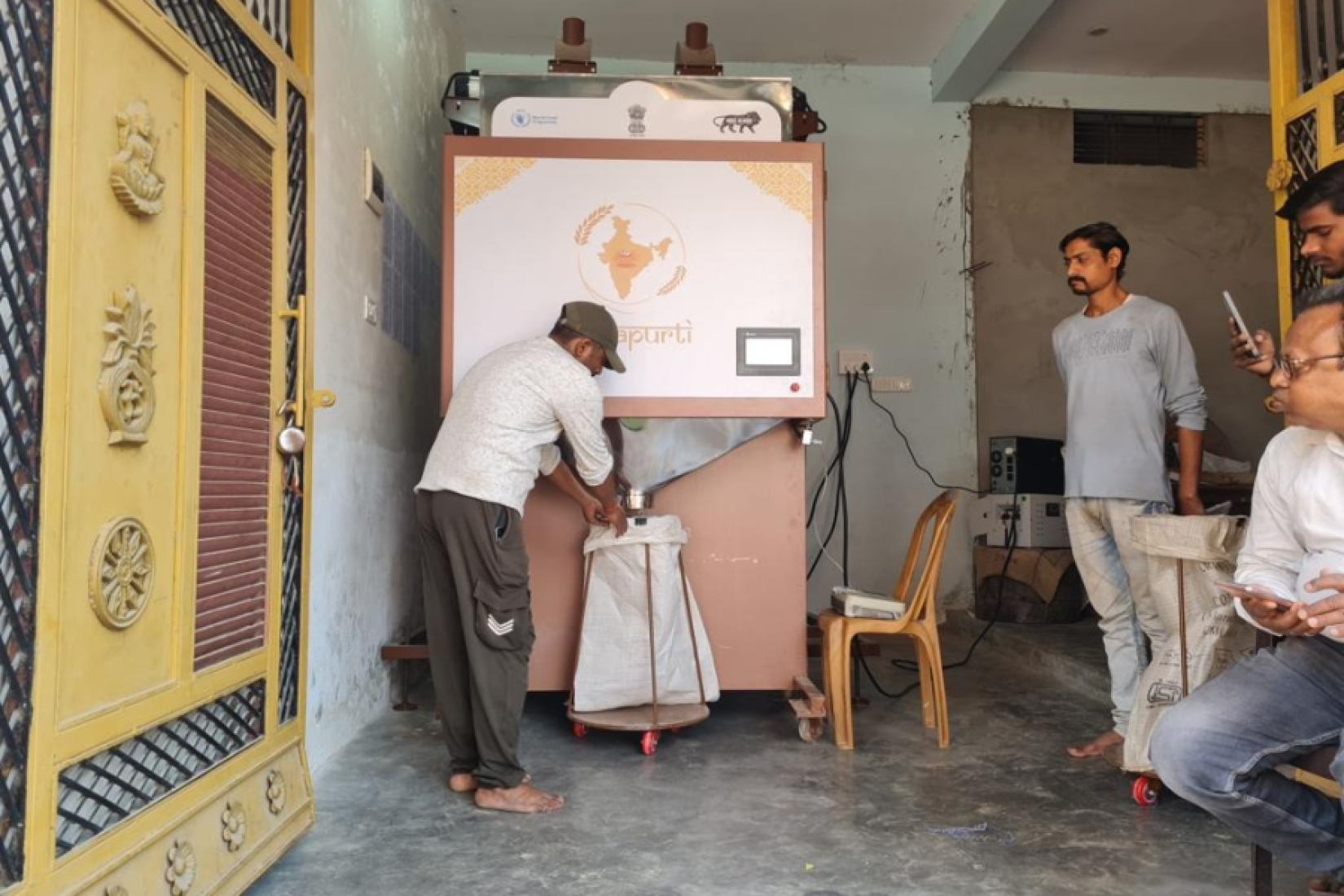
On the ground, too, 2024 saw significant innovations across the country tackling India’s most pressing challenges with the UN proud to play a role. For example, Odisha launched a new 24-hour ‘Grain ATM’, a collaboration between WFP and the State Government. This technological advancement streamlines the public distribution system, reducing waiting times and ensuring that the most vulnerable have greater food security. UN Women led collective action on gender equality, globally the ‘unfinished business of our time’ in the words of the UN Secretary-General, while ILO convened the system to help unleash India’s unequalled potential demographic dividend.
Another major milestone was reached with India formally declaring the end of trachoma as a public health problem, overcoming one of the leading global causes of blindness. By implementing the WHO SAFE strategy — targeting treatment, prevention, and hygiene — India dramatically reduced infection rates. This success underscores the power of coordinated efforts between government, health-care workers, and international partners.
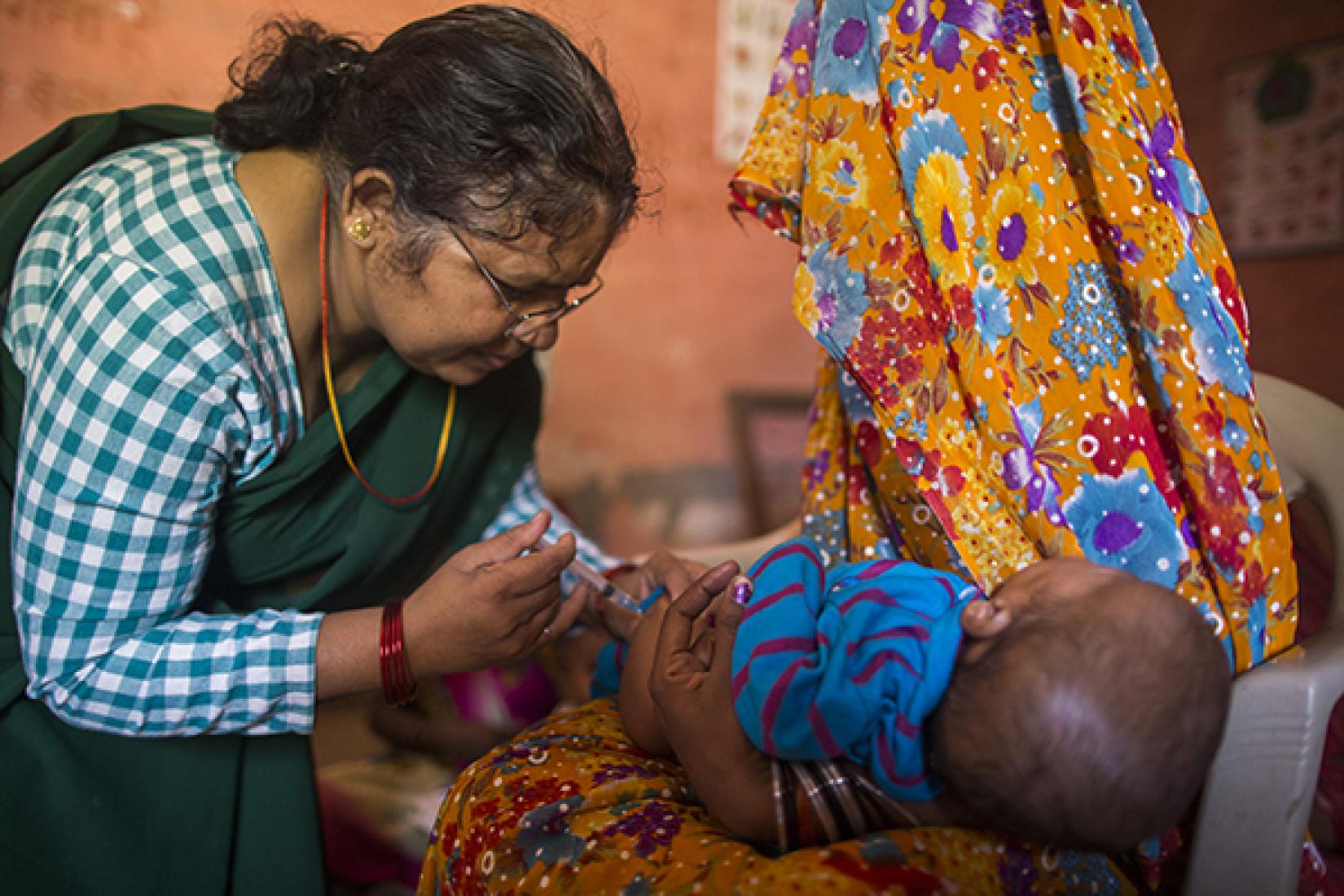
India’s digital public infrastructure continues to set global benchmarks. The U-WIN platform, supported by UNDP, has been instrumental in modernizing vaccine distribution, ensuring accessibility and equity in immunization. This leap builds on previous successes like eVIN and CoWIN, and links with work of WHO and UNICEF, strengthening India’s ability to respond to public health challenges both now and in the future.

This year saw the update and release of the India’s National Biodiversity Strategy and Action Plan (2024-2030) supported by UNDP. This strategic plan aims to set nature on a recovery trajectory by embracing a 'whole-of-government' and 'whole-of-society' approach.
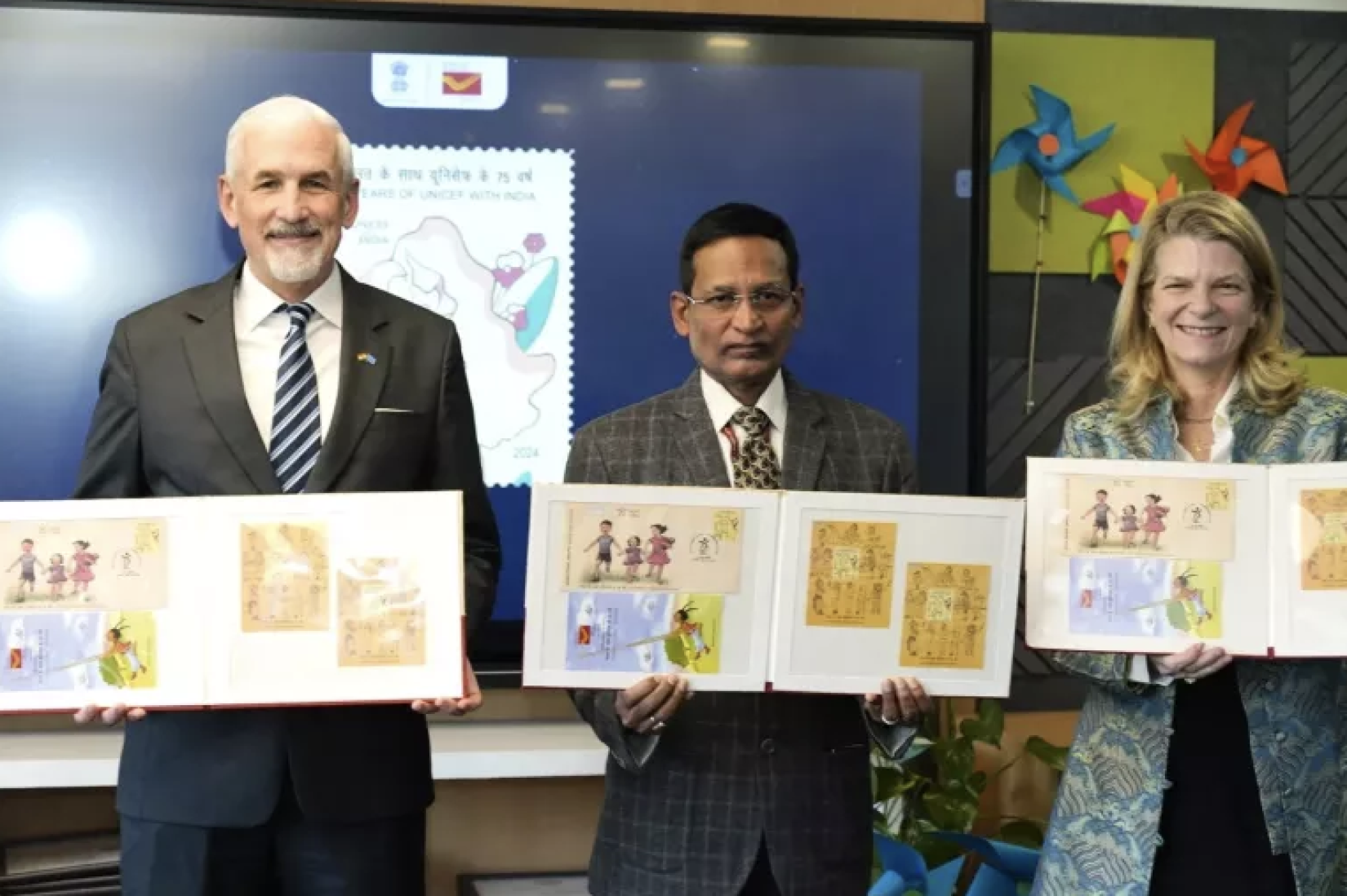
The UN family in India also celebrated several milestones in 2024. UNICEF marked 75 years of programming in the country to improve the health, safety and rights of children, while UNFPA commemorated 50 years, having contributed significantly to advancing sexual and reproductive health, especially for women and girls.
Inclusion remained a central theme of the UN’s work in India this year. A joint non-discrimination statement on the employment of persons with disabilities was signed by all 26 UN agencies operating in the country.
We formed a Multilateral Coordination Group with the government to bring together UN agencies, tailor programs for the welfare of persons with disabilities, and adapt global best practices to the Indian context.
As we approach the UN’s 80th anniversary next year, the momentum gained this past year will be crucial in advancing the initiatives outlined in the Pact for the Future that was adopted by all UN Member States, including India, at UN Headquarters in September.
This landmark agreement, along with its key annexes — the Global Digital Compact and the Declaration on Future Generations — reflects a global commitment to building a peaceful, sustainable, and inclusive future, and to making the UN more effective and relevant for dealing with tomorrow’s challenges.
India’s leadership in adopting and advancing these resolutions, particularly in strengthening South-South cooperation and prioritizing the voices of youth, will be vital in shaping the future.
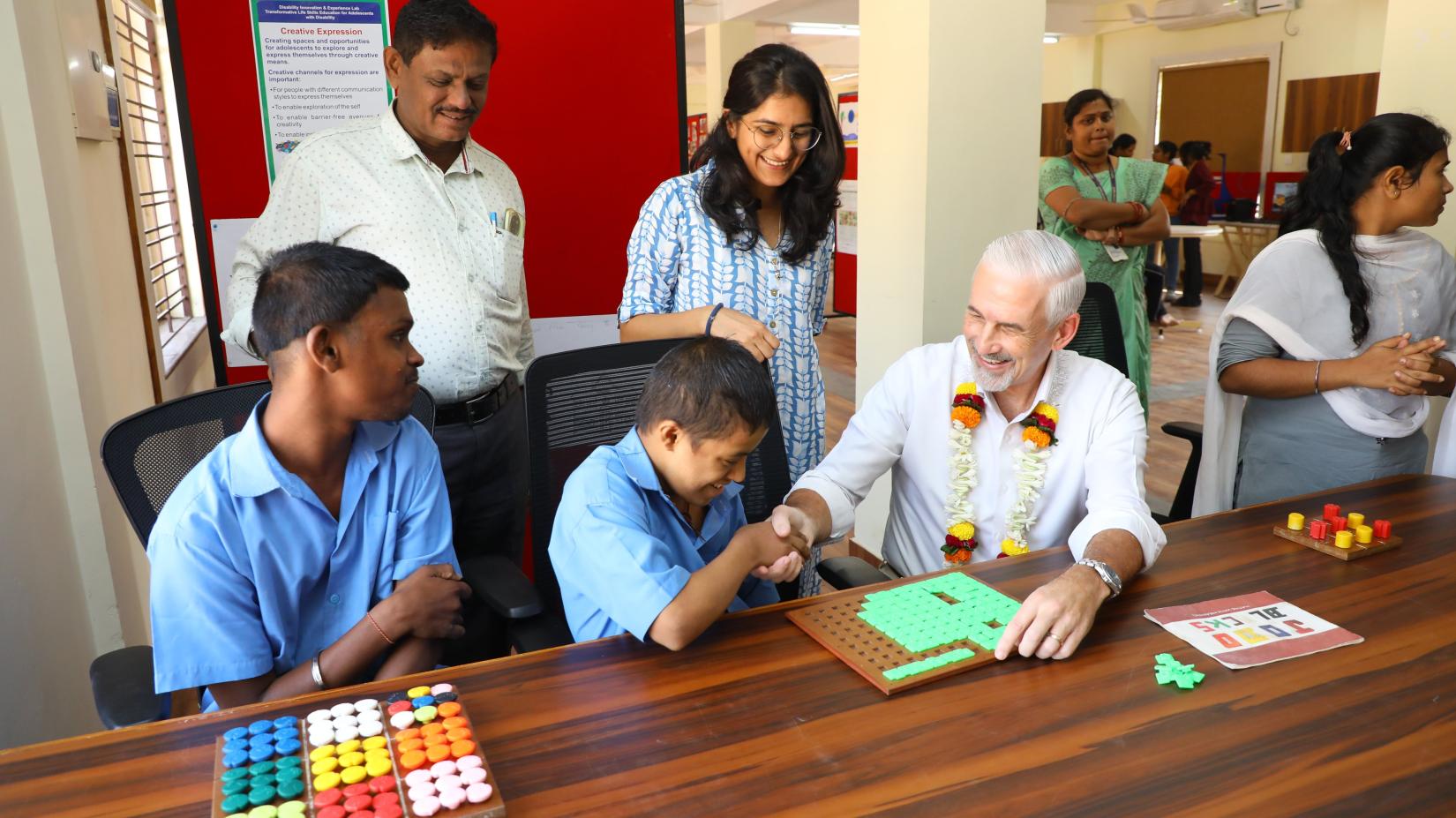
Across six outcome groups of the Cooperation Framework, the UN in India has consistently driven impactful results through collective action and partnerships. Just a few of the highlights include:
- Health and well-being: Through the U-WIN platform, over 17 million pregnant women and 59 million children have been digitally registered, and more than 264 million vaccine doses have been tracked.
- Nutrition and food security: More than 12.3 million Indians, including children and breastfeeding mothers, received nutritious fortified foods.
- Quality education: We helped train 18,000 teachers as Health and Wellness Ambassadors across 26,000 schools spanning 33 districts.
- Economic growth and decent work: Conducted health and safety training to improve the working conditions at nearly 300 tea-growing estates.
- Environment, climate, WASH, and resilience: 2.9 million tons of CO2 emissions reduced through energy conservation and climate-friendly initiatives
- Empowering people, communities, and institutions: Supported the government in expanding gender-responsive budgeting in six states, leading to increased funding for women’s empowerment and gender equality.
One of the standout moments of 2024 was when Major Radhika Sen from the Indian Army, serving as an Indian peacekeeper in the Democratic Republic of Congo, received this year’s UN Military Gender Advocate of the Year Award.
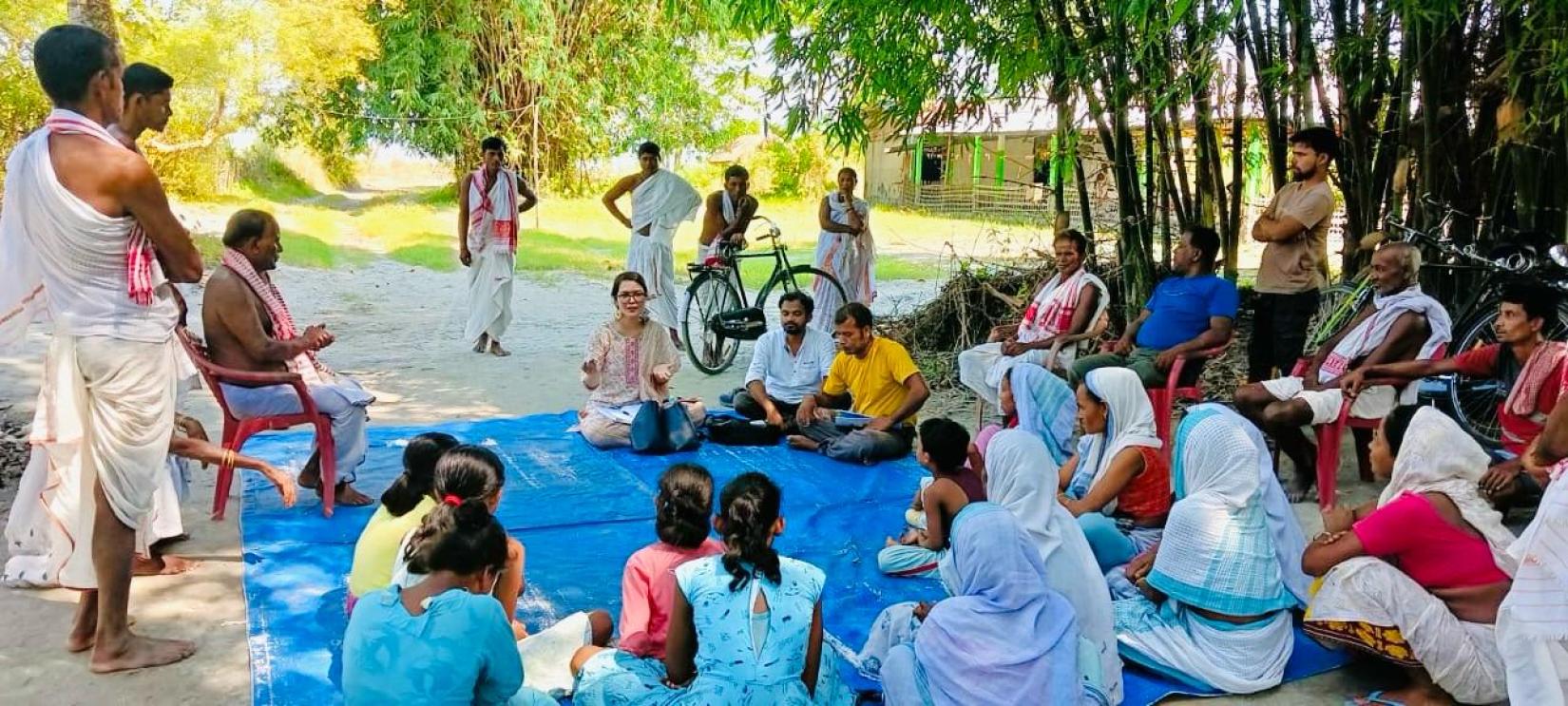
Additionally, the fourth edition of the SDG India Index produced by NITI Aayog with support from the UN showed India’s score rising to 71 out of 100, up from 66 in the previous edition.
As we enter 2025, the race to achieve the SDGs enters a critical phase. With only half of the Decade of Action left, the urgency is unmistakable.
This year has demonstrated the power of purpose and partnerships. From safeguarding cultural heritage to pioneering advancements in technology, India is showing how nations can drive sustainable growth while addressing global challenges.
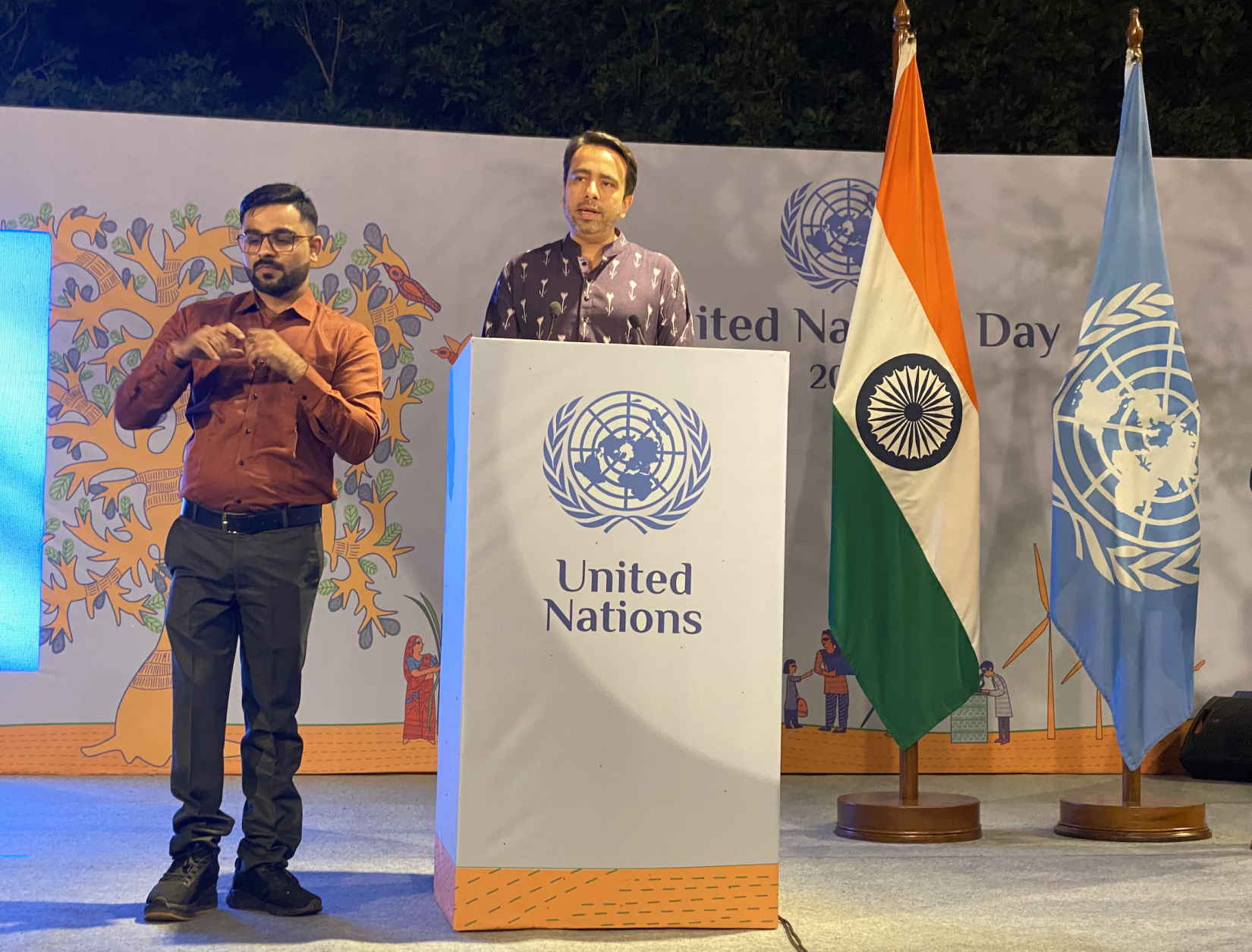
The United Nations, a humble partner working alongside India in this journey, remains committed to ensuring that progress benefits everyone. As I could not have begun to fully cover here the wide range of collaborations in which the UNCT is engaged, please have a look at our monthly newsletters on our website, or the annual report which will be issued within the first quarter of 2025, for more exhaustive stories of our work.
The path ahead is steep, but with shared resolve, a more equitable and sustainable future is within reach. India is uniquely positioned among nations to accelerate development results at a scale and pace sufficient to give the global SDG push a vital boost, and with it optimism towards 2030.
On behalf of the UN in India family, I am pleased to share our deep appreciation for your partnership in the year that was, and in anticipation of the important collective path ahead.
Dhanyavaad!
Shombi Sharp
United Nations Resident Coordinator, India
Speech by
